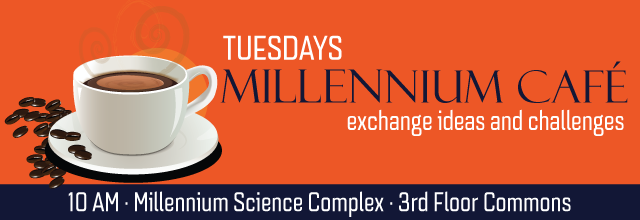
Heterogeneous catalysis is a core technology in the bulk and specialty chemical industry. However, we still lack the ability to design or assemble catalysts of arbitrary complexity. In this Café talk, I will summarize our efforts aimed at building catalytic entities of controlled nuclearity and composition and solicit help for exploring new material platforms to realize our catalyst design goals.
